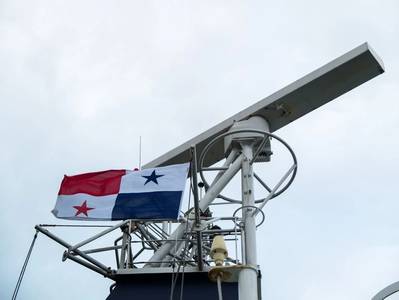Panama to Fine Ships up to $10,000 if They Tamper with Transponders
Panama's Maritime Authority said it will impose sanctions on vessels, including fines of up to $10,000 and withdrawing its flag from the ship, if they deliberately deactivate, tamper or alter the operation of their tracking transponders.
"This General Directorate of Merchant Marine will impose sanctions to all those Panamanian flagged vessels that deliberately deactivate, tamper or alter the operation of Long Range Identification and Tracking System or the Automatic Identification System," it said in a statement.
The head of Panama's Merchant Marine, Rafael Cigarruista, told Reuters the decision to sanction ships that do not comply with the rules are part of commitments made by Panama to avoid sanctions from international organizations.
"We want our ships to not deliberately turn off their equipment," said Cigarruista.
Panama has the largest shipping fleet in the world with some 8,000 vessels registered.
The Panama Maritime Authority said it is constantly monitoring its fleet and it will initiate an internal investigation if it detects a vessel's transponder is down or not reporting.
That investigation "may culminate with sanctions that will be deemed appropriate (and) in some cases where the vessel is found having this conduct on regular bases could be de-flagged or deleted from the registry."
The Trump administration on May 14 Thursday issued guidelines to help ship owners and insurers avoid the risks of sanctions penalties, standards that were modified following months of discussions with industry.
The guidelines, known as a Global Maritime Advisory, concern sanctions on Iran, North Korea and Syria. The State Department said it is committed to disrupting sanctions evasion and smuggling of goods, including oil exports from Iran, which the Trump administration imposed sanctions on soon after pulling out of the Iran nuclear deal in 2018.
The maritime advisory was first outlined on March 9 by David Peyman, a State Department deputy assistant secretary. He said then the advisory would, among other things, warn shippers not to turn off transponders and to not store Iranian oil.
(Reporting by Elida Moreno; Writing by Anthony Esposito; Editing by Kim Coghill)














